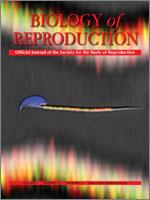Comprehensive understanding of the cellular mechanisms utilized by luteal cells in response to extracellular hormonal signals resulting in the normal synthesis and secretion of their steroid and peptide products has yet to be achieved. Previous studies have established that cAMP functions as a second messenger in mediating gonadotropin stimulated luteal progesterone secretion. Classically, increased intracellular concentrations of cAMP result in activation of protein kinase A (PKA), which in turn phosphorylates gene regulatory transcription factors. Recent studies demonstrate that non-PKA mediated actions of cAMP exist, yet the mechanisms are not well understood. In addition to gonadotropic hormones, such growth factors as insulin, insulin-like growth factor 1, and epidermal growth factor have been shown to modulate luteal steroid hormone synthesis and steroidogenic enzyme expression as either independent effects or via amplification or modulation of the action of gonadotropic hormones or cAMP. Thus, mechanisms independent of cAMP and also downstream to cAMP that do not involve PKA are likely to be important in steroidogenesis in mammalian cells. The present studies were performed to help define the cellular mediators involved in cAMP-stimulated progesterone expression. Our data demonstrate that, in an in vitro steroidogenic cell model, 1) cAMP-stimulated progesterone occurs in a manner that is independent of PKA, 2) neither phosphatidylinositol-3-kinase nor mitogen-activated protein kinase are involved in PKA-independent cAMP-stimulated progesterone production, 3) tyrosine kinase activity does mediate cAMP-stimulated progesterone production, and 4) cAMP directly activates the Ras protein. These data suggest novel mediators of cAMP-stimulated progesterone production.
How to translate text using browser tools
1 July 2007
Protein Kinase A-Independent cAMP Stimulation of Progesterone in a Luteal Cell Model Is Tyrosine Kinase Dependent but Phosphatidylinositol-3-Kinase and Mitogen-Activated Protein Kinase Independent
Elie Needle,
Kathy Piparo,
Donna Cole,
Carolyn Worrall,
Ian Whitehead,
Gwen Mahon,
Laura T. Goldsmith
ACCESS THE FULL ARTICLE

Biology of Reproduction
Vol. 77 • No. 1
July 2007
Vol. 77 • No. 1
July 2007
corpus luteum
corpus luteum function
female reproductive tract
progesterone
signal transduction




